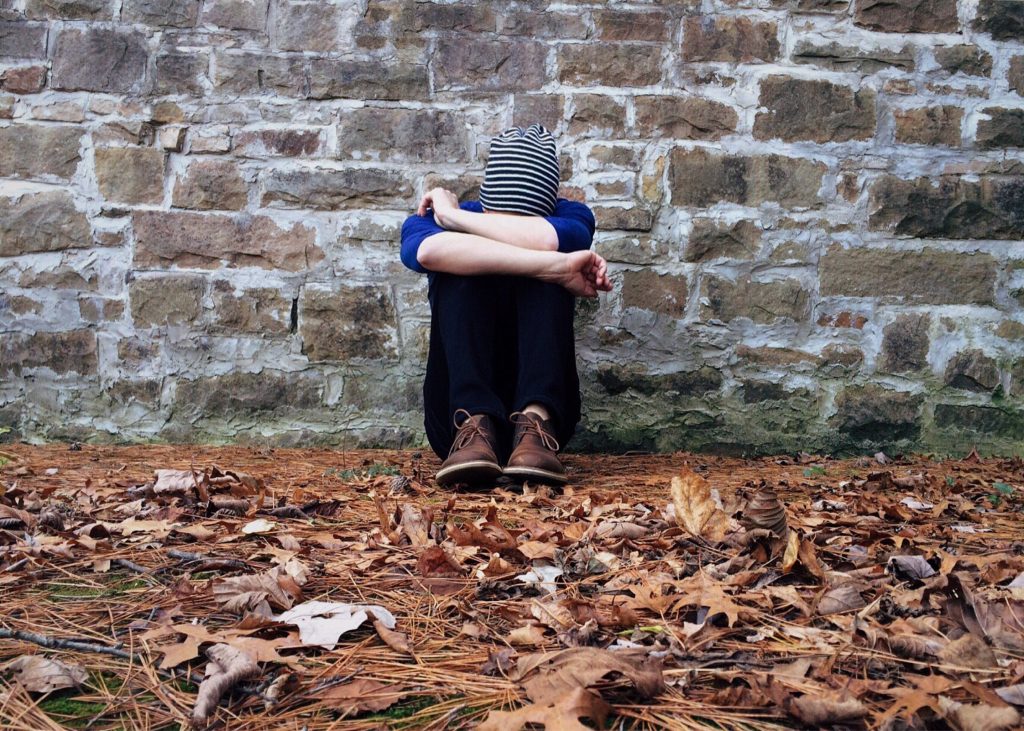What to Do When a Friendship Ends
We all talk a lot about romantic breakups. But what about friendship breakups? It can be hard to know what to do when a friendship ends. Should you try to rekindle it? Or should you leave them be? And what about if a friend ghosts you?

We all talk a lot about romantic breakups. But what about friendship breakups? It can be hard to know what to do when a friendship ends. Should you try to rekindle it? Or should you leave them be? And what about if a friend ghosts you?
Deep, lasting friendships are now valued more than ever before. As societies become more developed, people have a stronger desire for deeper connections, and this impacts all kinds of relationships, including friendships.
To some extent, it’s because in first-world countries, a lot of people’s basic needs are now fulfilled, and we are able to focus on more sophisticated needs, such as feeling understood and supported on a deeper level by friends, family, and romantic partners.
It’s easy to assume that your friends will always be there, but sometimes friendships don’t last a lifetime. In fact, this is relatively common. In this post, we delve into what to do when a friendship is over, whether to try to rekindle it, and how to cope with the feelings of loss.
Why friendships fizzle out
Friendships can fizzle out for a number of reasons. One of the most common reasons is that people can grow apart over time. The person you were ten years ago isn’t the person you are today, and the same goes for your friends.

You might have been highly compatible with someone as a friend back then, but now you just don’t click in the same way. There’s absolutely nothing wrong with this; people and situations are ever-changing.
Another common reason that friendships fade is due to life circumstances. If one or both of you go through a particularly busy period, you have less time to spend with friends, and without regular communication, your connection gradually fades. Friendships need feeding in order for them to thrive or even be maintained.
Another life circumstance that can cause friendships to fizzle out is physical distance, such as one of your moving to another city or country.
How to know if you should rekindle a friendship
If you are looking to rekindle a friendship, first take a good look at the reason why the friendship ended. If it’s because you grew apart and you fundamentally aren’t as compatible anymore, then it will most likely be a struggle to rekindle the friendship.
However, if the friendship fizzled out due to challenges relating to life circumstances that have now been resolved, say you are less busy, or you are living closer together, you have a much higher chance of a successful rekindling.
Some friendships end in a more dramatic fashion, such as a disagreement that caused someone to feel hurt or angry. These types of issues may require forgiveness or a conversation before the friendship can be restored.
But forgiveness needs to come from a place of truly wanting to forgive and being able to. If both people aren’t willing and able to forgive, a rekindling of the friendship may not be possible. Some friendships simply can’t be salvaged.
How to rekindle a friendship
If the friendship fizzled out and you decide that you do want to try to rekindle it, ask your friend if they are free to chat. You don’t need to overthink it too much; it can be something as simple as asking them to meet for a coffee or to catch up on the phone.
However, if there was anger and hurt towards the end of the friendship, you should proactively address this when you reach out. Taking responsibility is key, and it’s important to apologize if necessary.
Lay your cards on the table and tell them that you highly value your friendship. When you are talking things through, try not to focus too much on the concept of rekindling the friendship. Be yourself and observe the dynamic. If you come away excited and you sense a connection, it’s a good sign. You will both need to make an effort to some extent, but it should progress relatively naturally from there.
What to consider when rekindling a friendship
When you are rekindling a friendship, you need to make sure you are both on the same page and that you both want to make it happen. If this is the case, you then need to ensure that you’ll be able to make space in your lives for the friendship to develop.
You might find yourself in a situation where someone approaches you, wanting to rekindle a friendship. If this happens, you need to decide how you feel about it. You might not necessarily know straight away, and that’s ok. Meet up with them and see.
You don’t necessarily have to be discussing all of this at each step. It should be clear after meeting up a few times whether the rekindling is the right path.

A friendship rekindling is like dating in some ways. There will be a chance that one of you isn’t willing to put in the time and effort. Sometimes, it will be clear from the beginning, and sometimes it will take time to show.
There are times when rekindling a friendship just doesn’t work. It takes two to tango. If your friend isn’t open to rekindling the friendship, it can be tough, and you can end up feeling rejected.
But it’s important not to take it personally. It’s not an indication that you are flawed; it’s just that your friendship didn’t work out at that particular time in your life. There will be many more friends for you out there that will be better matched.
Rekindling a friendship with therapy
More people are going to friendship therapy than ever before, and there are a number of reasons for this. Firstly, therapy, in general, is much more normalized and accepted than it was even five years ago, and there’s now much less stigma around it.
While going to therapy was previously associated with being ‘weak’ or ‘flawed’ by some people, it’s now often viewed as a positive because it shows that you are taking proactive steps to work through your issues.
Another reason why more people are going to friendship therapy is that we are still feeling the effects of the pandemic. It turned people’s lives upside down, and friendship dynamics completely changed overnight. It was a lot to deal with, and some friendships need external support to adjust to these changes.
If friendship therapy is something you’re considering, know that you’re not alone. It’s a great sign in itself if you are both willing to go to friendship therapy. It shows that you both value your friendship and that you want to put in the time and effort to try and make things work.
In a lot of ways, the bond between two close friends isn’t too dissimilar to that of a couple. Both romantic and friendship dyads often face similar challenges, such as a breakdown of communication or trust. Ultimately, the reason friends go to therapy is that one or both people’s needs aren’t getting met, but both parties want to work through this challenge if possible. Friendship therapy can provide a space for friends to overcome past hurt, strengthen their bond, and build a deeper level of trust and communication.
Friendship therapy is taken just as seriously as couples therapy and, in some ways, even more so. This is because it’s less common, so people who choose to go to friendship therapy are often prepared to make a huge effort to make things work. Ultimately, it means that both people care deeply about the friendship, which is a positive sign in itself.
What to do when a friend ghosts you
Being ghosted by a date is a well-known phenomenon. After all, rejection comes with the territory. But being ghosted by a friend is less common and rarely talked about. Despite this, it can be even harder to get over being ghosted by a friend. This is because you probably invested more in the relationship than in people you casually dated.

When a friend ghosts you, it can also be confusing because you trusted and respected them. It can feel like a dagger to the heart, and it can make you question how someone you had a history with could vanish without any explanation.
If you care about the friend who ghosted you and you do want to try to repair the friendship, reach out to them. Explain that you deeply value your friendship and you would like to talk things through. If they are willing to open up the conversation, that’s a good sign. There’s no guarantee that you’ll be able to fix the friendship, but it’s possible.
However, there’s a chance that they might not be ready to have that conversation yet, or they might never want to. But by reaching out and laying your cards on the table, you’ll be able to move forward without regret.
Try not to take it personally if a friend ghosts you. This is easier said than done, but remember that they are making this decision based on their own lives and issues. In some cases, your friend might be going through something personal that has nothing to do with you. That doesn’t mean it’s right, but it can help take some of the sting out of being ghosted.
Why a friendship ending is so hard
Friendship breakups can be just as heartbreaking as romantic breakups, and sometimes even more so. They are rarely talked about, and it’s easy to assume that your close friends will be by your side forever.
Romantic breakups are continuously in the spotlight. We’re exposed to them through the media, song lyrics, and chatting with friends. This means that we all know that romantic breakups are a very real possibility. However, friendship breakups can be a shock because they just aren’t as much a part of people’s consciousness.
Another reason that friendship breakups are hard is that we don’t always give ourselves the space to grieve in the same way. When we go through a romantic breakup, people expect us to be devastated and to take time to get over it.
Friendship breakups are often viewed as less significant, which can make us feel like our emotions seem less valid. It’s important to remind yourself that this isn’t the case and that it’s essential for your long-term mental health to go through a grieving process. Don’t be afraid to reach out for support from family and friends or to see a therapist if you need help dealing with the situation.

Friendship breakups are especially hard if you’ve been friends for a long time. When a friendship breakup involves someone you’ve been close to for years, you’ll have been through a lot together. You know each other inside out, you’ve seen each other at your worst, and you’ve watched each other evolve to become the people you are today. Letting go of that history is extremely tough, and it can feel like losing a part of yourself.
What to do when a friendship ends
If the friendship is truly over, it’s important to remember that you don’t need to carry any guilt or shame. Some friendships last a lifetime, while others come and go. People and circumstances change. It’s not a reflection of your worth as an individual; it’s simply life.
Even though it can be hard to accept that a friendship is over, know that it will get easier with time, and you will be able to find new meaningful connections.
It’s also important to give yourself time to process what happened. Allow yourself to feel your emotions and take care of yourself in whatever way makes sense. As discussed above, we don’t always give ourselves time to fully grieve when it comes to friendship breakups. So it’s important to bear that in mind.
Ultimately, you should treat a friendship ending like a relationship breakup. In some cases, it can be even more devastating.
Final thoughts on what to do when a friendship ends
It’s never easy when a friendship ends, but sometimes it just isn’t meant to be. It’s much better to let go rather than end up in a friendship where you are making all of the effort.
You may be feeling devastated right now, but remind yourself that the pain will subside. You’ll feel better with time, and new friends will come into your life. Stay open to new possibilities and take all the space you need to grieve your loss.
Before you go, you should read our blog about 15 tips for dealing with rejection.




